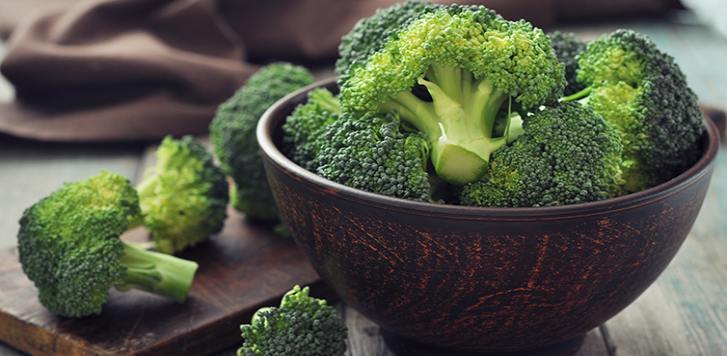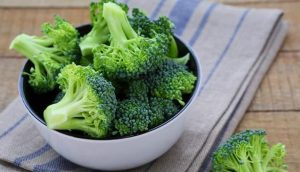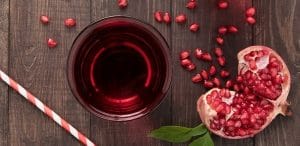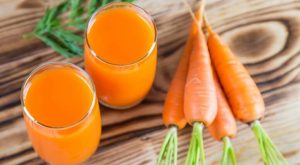Since we published an evidence-based article about ” the health benefits of broccoli ” on this website, we are well aware of the potential benefits of eating broccoli on a regular basis.
That being said, there seems to be a potential side effect of eating broccoli that could surprise many people.
So, is it true? Could eating broccoli actually cause harmful blood clots to form?
In this article, we will handle this question in every aspect and provide a science-based answer.
However, if you don’t have time to read the whole article, here is an immediate answer for you:
The Immediate Answer
No, if you are a healthy person who doesn’t have any risk of developing blood clots, then you should have nothing to worry about. Because eating broccoli won’t cause you to develop harmful blood clots.
However, if you carry a risk of developing abnormal blood clots due to, for instance, a heart disease, cancer, an autoimmune disorder, serious injury or family history and use a blood-thinning medication such as warfarin to minimise this risk, then yes you may need to be careful about your broccoli intake!
It seems this answer requires a clearer explanation. Actually, this is what we are going to do in the rest of the article. We are going to distinguish right from wrong about broccoli’s (potential) blood clotting property.
Without further ado, let’s dive in and find out in what way eating broccoli may increase blood clot risk.
How Does Eating Broccoli Lead to Blood Clots?
Essentially, everything starts with broccoli’s extremely high vitamin K content. Though, this is a good thing given the fact that vitamin K is essential and has many functions in the human body (1),(2),(3).
However, if you use a particular anticoagulant (blood-thinning medication) that interacts with vitamin K, the excess consumption of vitamin K can put you at risk of developing harmful blood clots by reducing the effectiveness of the anticoagulant that you are on (3),(4).
There are many anticoagulants (blood-thinning medications).
Among them, warfarin – which is sold under the brand name Coumadin – is arguably the most common anticoagulant that interacts with vitamin K.
That means, its effectiveness can change based on vitamin K intake (4),(5),(6),(7).
On the other hand, there are anticoagulants that have no food-drug interactions, meaning they aren’t affected by the amount of vitamin K consumed (8).
So, if you are using a blood-thinning medication that is not affected by the amount of vitamin K consumed, then consumption of broccoli or other foods high in vitamin K should not make you worried.
To understand it better though we should comprehend how vitamin K and blood thinners affect one another. Please keep on reading.
Vitamin K
In addition to its many important functions in the human body, vitamin K is necessary for proper blood clotting (3),(9).
For instance, when you accidentally cut your finger; certain proteins – which need vitamin K to function properly – start forming a clot in the cut area, thus preventing excessive bleeding (10).
Vitamin K deficiency can negatively impact your body’s production of blood clotting factors, which in turn, may lead to unusual bleeding (11),(12).
That must clearly explain the significance of vitamin K in blood clotting.
Anticoagulants
Anticoagulants, on the other hand, are medications used to prevent abnormal blood clots.
The reason that people use blood-thinning drugs is that they have a relatively high risk of developing blood clots, which can even lead to heart attack and stroke (13),(14).
Vitamin K and Anticoagulants
Now we know that vitamin K is helping the blood clot while blood thinners are thinning the blood to prevent inappropriate and harmful blood clots.
So, it is safe to say that vitamin K and anticoagulants have opposite effects (15).
If you are using any type of blood-thinning medication that interacts with vitamin K, excessive vitamin K intake can cause problems (15).
Moreover, increasing your vitamin K intake suddenly as well can hinder the effectiveness of warfarin and may lead to unwelcome consequences (4).
This is exactly where broccoli comes into play! Since broccoli is rather rich in vitamin K, it can decrease the effectiveness of warfarin – which is affected by the amount of vitamin K consumed – and may lead to harmful blood clots (16),(4).
For this specific reason, people who regularly use warfarin are recommended to avoid eating a high amount of vitamin K, for instance; broccoli. They are also recommended not to suddenly increase or decrease their daily vitamin K intake.
You now might want to say that “ If broccoli can potentially bring about blot clots due to its high vitamin K content, other foods that contain high vitamin K would also make the same impact“.
That is accurate. Other foods that are high in vitamin K as well may decrease the effectiveness of anticoagulants that interact with vitamin K, leading to certain problems.
However, broccoli is one of the highest in vitamin K (1). Therefore, this green health vegetable is sometimes associated with blood clots.
Broccoli and Vitamin K
Thus far, we have repeatedly said that broccoli is very rich in vitamin K.
But, we haven’t given any specific number. In this section, we will touch on broccoli’s high vitamin K content in more detail.
100 gr raw broccoli contains 101.6 mcg of Vitamin K (17).
That means:
- If you are an adult man 100 gr broccoli meets your body’s entire daily vitamin K needs.
- If you are an adult woman the same amount of broccoli can give you slightly more vitamin K than your body needs a day (17),(18).
What is the recommended daily intake of vitamin K?
According to the Food and Nutrition Board (FNB) at the Institute of Medicine of the National Academies (18),(19):
- Females older than nineteen need 90 mcg of vitamin K per day
- Males older than nineteen need 120 mcg of vitamin K per day
Above, we have said 100gr raw broccoli contains 101.6 mcg of vitamin K. What’s interesting is that when broccoli is boiled, vitamin K content rises from 101.6 mcg to 169 mcg.
Note: Other leafy green vegetables such as kale, spinach, collard and parsley are also high in vitamin K. Therefore, they also may interfere with the effectiveness of warfarin.
Should You Stop Eating Broccoli If You Use Warfarin?
If you are on a blood-thinning medication that interacts with vitamin K such as warfarin, your doctor must have already given you a list of foods you should limit or avoid. So, we heavily recommend you sticking the list that your health care provider or nutritionist gave you!
Our recommendation is that just make sure you are not exceeding the amount of vitamin K that you consume a day.
Because the dose of the warfarin you are using was determined based on your approximate daily vitamin K intake.
If – for any reason – deliberately and constantly consume more vitamin K than you should, you ought to know you might be lowering the effectiveness of warfarin. That in turn may lead to unwelcome medical conditions.
It bears repeating; while you are on warfarin do not make deliberate changes in your daily vitamin K intake without consulting your doctor.
If you desire to increase your vitamin K intake, such as by eating more broccoli, talk to your doctor.
Your doctor may increase the dose of warfarin in order to meet your increased vitamin K intake.
” Should, I cut broccoli from my diet as I use blood-thinning medication?”.
You should cut neither broccoli nor other healthy foods rich in vitamin K! The only thing to do is to be careful about how much vitamin K you are eating a day.
After all, broccoli and other green vegetables can contribute to your health in many ways. So, eliminating them entirely wouldn’t be a good idea.
Conversely, if your diet lacks vitamin K, it can also cause problems like nosebleeding or bruising. So, consistency in terms of eating more or less the same amount of vitamin K is key.
Conclusion
If you are a healthy individual with no risk of developing harmful blood clots, then you can eat broccoli whenever you desire. Nevertheless, moderation is key!
The title of this article is ” Does Eating Broccoli Cause Harmful Blood Clots to Form ?”. Here is the final answer:
- If you are on blood-thinning medicine that interacts with vitamin K, eating broccoli may cause you to exceed the limit of eating vitamin K per day. That, in turn, may decrease the effectiveness of the medicine, therefore, may increase the risk of developing harmful blot clots. If you are a healthy person though, you are super free to eat this healthy vegetable ( unless you are allergic to it ).
Tarkan is an experienced health writer ( currently more than 600 articles ) and also the founder of this website namely www.neededforhealth.com. His expertise in health stems from in-depth medical research and knowledge which he obtained over the course of many years.
Tarkan enjoys sharing factual knowledge on health, psychology and nutrition. He always aims to deliver evidence-based recommendations, provide links to related scientific studies.





